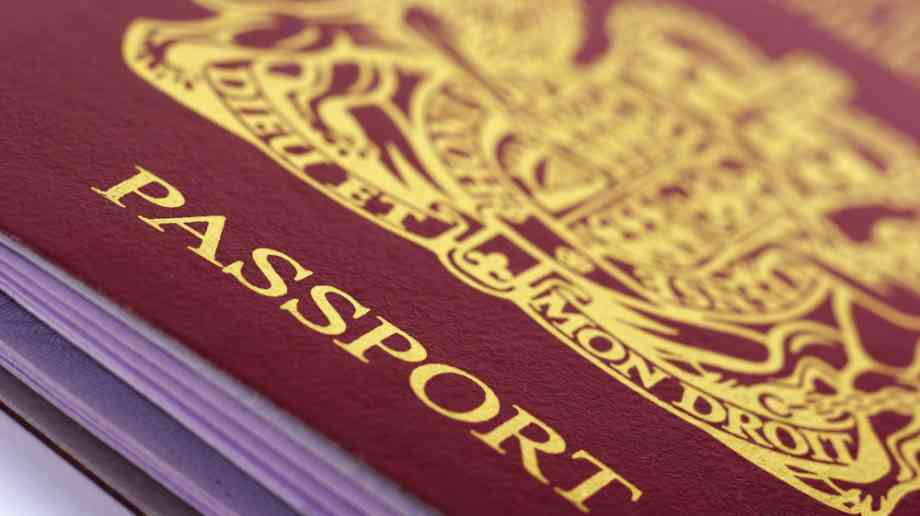
Going abroad for your trip
School visits abroad provide further opportunities for pupils to experience challenge, culture and languages, but also call for even greater care, organisation and planning than visits and adventures at home. RoSPA shares some advice
Visits abroad offer students a unique opportunity to experience different cultures and apply their language studies to real life situations. But there are key considerations to bear in mind when planning, in particular travel arrangements, language and country specific legislation.
School visits abroad provide further opportunities for pupils to experience challenge, but also call for even greater care, organisation and planning than visits and adventures at home. The LOtC Quality Badge accreditation can be useful when choosing a third party provider for overseas visits. This accreditation includes a review of travel arrangements and accommodation among other elements.
Schools should refer to the specification BS8848 which is for the provision of visits, fieldwork, expeditions and adventurous activities outside the United Kingdom.
What’s more, the HSE website has a useful section on frequently asked questions about school visits abroad.
Three options when planning
There are three options open to schools planning a trip abroad. Firstly they could use a commercial travel agent specialising in school journeys, who will organise travel, hotels, visits and all necessary details. Travel Agents who are members of ABTA (Association of British Travel Agents) are governed by ABTA’s code of conduct.
Secondly, they could use the services of one of the voluntary bodies established to promote school journeys, such as The School Journey Association of London (SJA). Wherever possible, schools should use companies which are members of the School Travel Forum. Member companies must abide by the Forum’s code of conduct.
The third option is for schools to do it themselves and make all, or most, of their own arrangements.
Key points for visits abroad
Allow plenty of time to organise travel documentation. Check all passports are valid for the date of travel and that you have the relevant visas. Note that some countries require passports to be valid for at least six months after the date of entry to the country. Take advice from your local authority or employer and/or Home Office Immigration and Nationality Department if you are unsure about any aspect of obtaining the correct documentation. The British Council provides forms and supporting letters for non EU citizens who wish to travel to an EU country as part of an educational visit without getting a visa.
Please note that the form cannot completely guarantee entry into a country. It is used instead of a visa but even a visa does not completely guarantee entry into a country. Know where the nearest British Embassy is situated in relation to where you will be staying.
With regards to culture and language, at least one adult member of the party should be competent in the language of the country. It is desirable if everyone knows the basics of the language, including ‘please’, ‘thank you’ and ‘excuse me’. Encourage the children to sample the country’s cuisine before the visit and teach them something about the country’s culture, especially laws and customs.
Health, fitness and general safety
Be familiar with potential health and safety risks. Be aware of the medical needs of members of the group and check that medicines are clearly labelled and stored safely and appropriately. Party members must have recommended vaccinations. Warn of the dangers of drinking tap water in some countries. Take insect repellent and water sterilising tablets together with a basic first aid kit. Know how to avoid sunburn, sunstroke and de-hydration. Inform the children about rabies. Be clear about the circumstances when pupils will be allowed out unaccompanied either alone or in small groups. Everyone in the group should know what to do in the event of an emergency whether accident or illness, including how to contact the emergency services. Leaders should be aware of, and apply, any additional country specific regulations relating to any adventurous activity to be carried out as part of the visit.
Travel and accommodation
Carry out checks to ensure that the centre is suitable. For example: ask for contact details of previous users who are prepared to give a recommendation and ask your LA adviser if they or their network know of anyone who has used the particular provider. It is recommended that team leaders make enquiries about security and fire safety checks in the accommodation to be used and ensure the fire evacuation procedure is explained on arrival at the hotel or centre.
It is also recommended that each child is given a distinctive badge to wear and should carry a card giving the address of the group’s accommodation written in the language of the country being visited.
With regards to travel, always use reputable companies. If travelling by coach the company and the drivers should be able to prove that they have the required knowledge and experience and that they are aware of the specific legal requirements of the country to be visited.
Security and Customs
Know how to get through Immigration, Security and Customs with groups of young people, making sure that an adult member of the party is the last to leave the customs hall on arrival at your destination.
What’s more, the party leader will need to carry all necessary information. This will include: The headteacher’s home address and contact telephone number, and the names of parents and addresses and telephone numbers at which they can be contacted.
They should also hold a copy of a list of group members. Full details of the visit should also be retained at the school while the visit is in progress.
Planners should also double check that their insurance cover is appropriate to the visit.
Local Laws
While you are abroad you and your pupils will be subject to local laws and culture. It is important that you familiarise yourself with the basics laws and cultural requirements of the country which you are visiting, and clearly communicate any prohibited acts to the pupils. What is acceptable in the UK or EU may be a criminal offence in the country which you are visiting. In particular, certain countries have strict laws regarding decency and conduct, and older pupils in particular may, in all innocence, fall foul of these laws. You should familiarise yourself with the address and telephone numbers for the British Embassy in the country which you are visiting. If there is an issue you should contact the embassy for advice without delay
High Risk Activities
Some key considerations for high risk activities. Travel to and from activities can be the most hazardous part of the visit. However, sensible precautions ensure that these risks can be managed to ensure everyone arrives safely at their destination. If travelling by coach, always use reputable companies.
Camping
Fire is always a potential hazard – mainly as a result of cooking activities. Other hazards include carbon monoxide poisoning from the incomplete combustion of gases and charcoal from single use barbecues. The party leader must be an experienced camper. Careful, precise planning plus good order and discipline are essential.
Mountain Walking and rock climbing
Many accidents occur in mountainous country as conditions can and do change rapidly – even in the summer. A high quality of leadership is vital. Anyone taking part should be physically fit, mentally prepared and know standard procedures for dealing with becoming lost. With rock climbing, a high quality of leadership is vital. There should be a leader:pupil ratio of at least 1:4 on single pitch climbs (one pitch point usually at the top of the rock controlled by party leader) and 1:3 on multi-pitch climbs (more than one pitch point).
Swimming outdoors
Statistically, this is the most risky outdoor activity for children. An accident in any depth of water can be fatal unless prompt action is taken. Being able to swim well in a swimming pool does not guarantee safety in outdoor water. The cold water temperature is always a potential hazard.
Caving and potholing
This type of adventure can never be completely safe, but leaders have a clear responsibility to make sure that the hazards that the pupils encounter are kept within “acceptable limits”. For example, when caving the party leader must be an experienced caver holding a Cave Leader’s Certificate. The assistant leader must be able to bring the party back to the surface safely in an emergency. For these high risk sports, the maximum recommended party is 2:10. Every group must consist of at least four people and any school party must include at least two adults.
Skiing and riding
The party leader must be a competent and qualified skier with a recognised certificate or award. Any pupil taking part must be physically fit and mentally prepared. There are strict safety procedures which must be followed – these include standards of equipment, qualifications for group leaders and codes of behaviour. The British Horse Society provides extremely useful guidance.
Cycling
Bicycles should always be checked for safety and any faults corrected. Party leaders must ensure that all the children are proficient cyclists with a thorough and working knowledge of the Highway Code. Cycle helmets and high visibility clothing should be worn.
Water-based activity
Effective water safety training should be incorporated wherever possible into all water activity programmes. Leaders of any water‑based activities must consider all of the following before proceeding: the water temperature, weather forecast and tidal conditions, as well as the swimming competency in ‘real conditions’
of all members of the party.
Latest News
21/11/2025 - 09:37
The framework provides a practical guide to integrating education and health for better outcomes for children and young people.
20/11/2025 - 10:42
Parents will be able to get Enhanced Disclosure and Barring Service (DBS) checks when hiring private tutors, carers and therapists, among others.
20/11/2025 - 10:37
The government is funding research into developing smarter data tools to help identify children with special educational needs sooner.
20/11/2025 - 09:48
The programme prioritises schools with the highest proportion of pupils on free school meals to ensure the benefits are felt where it is most needed.
19/11/2025 - 09:41
Skills England has announced that development of the second round of Local Skills Improvement Plans (LSIPs) is now underway and has published guidance to steer the process







